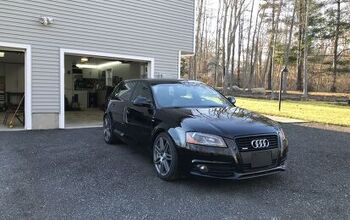Wisconsin Appeals Court Clarifies Dashcam Evidence Rules
The Wisconsin Court of Appeals on Wednesday gave its first ruling on how dashcam evidence would be treated at the appellate level. A three-judge panel decided that the proper legal standard when evaluating a video is to overturn a trial judge’s decision only it is “clearly erroneous.”
The context was provided by the November 4, 2009 arrest of Jeffrey D. Walli in Sheboygan. The court was asked to determine whether Sheboygan Police Officer Brandon Munnik had a valid reason for pulling Walli over in the first place. Munnik claimed that around 11:22pm Walli’s car nearly sideswiped him, so he flipped on his emergency lights, which triggered his dashboard-mounted video camera, and gave chase. Munnik testified that the resulting video showed Walli’s car over the center line and was a legitimate traffic violation. Walli’s attorney disagreed with that take.
“I think [the video] shows two vehicles coming toward each other, um, both on their side of the center line, they’re both close to the center line, and that there is no showing of Mr. Walli’s vehicle crossing the center line,” the lawyer argued.
The video showed the police car took no evasive action, but a judge did not buy the defense counsel’s argument.
“I believe at this point that the officer did see the vehicle cross the centerline, and that that’s a violation of the motor vehicle code, and would give reasonable suspicion to stop, so the court would deny the motion [to suppress the evidence],” Sheboygan County Judge Timothy M. Van Akkeren ruled.
The appeals court was asked to review the decision and determine whether based on the facts at hand the officer had reasonable suspicion that a crime was being committed. The panel decided it should assume the trial judge has a better handle on the facts of the case.
“With the near ubiquitousness of squad car video cameras, surveillance cameras and traffic cameras, appellate courts will be deciding more and more cases where some of the evidence is preserved on recordings,” Anderson wrote. “Where the underlying facts are in dispute, the trial court resolves that dispute by exercising its fact-finding function, and its findings are subject to the clearly erroneous standard of review.”
In other states, appellate courts have adopted a “de novo” form of review of video evidence that does not give the trial judge’s impression any extra weight. The Wisconsin judges were not persuaded by this approach.
“Here, the trial court’s ruling involved not simply the review of the video, the court also evaluated the credibility of the officer and weighed all of the evidence,” Anderson wrote. “In conference, we viewed the video recording from Munnik’s squad car and conclude that the trial court’s finding that Walli crossed the center line is not clearly erroneous.”
A copy of the decision is available in a 65k PDF file at the source link below.
Wisconsin v. Walli (Court of Appeals, State of Wisconsin, 5/11/2011)
[Courtesy: Thenewspaper.com]
More by The Newspaper
Latest Car Reviews
Read moreLatest Product Reviews
Read moreRecent Comments
- Bd2 Excellent article, very nice car. Thank you Murilee.
- Make_light I like Subarus, and I often think they don't get enough credit for how they drive. Lots of people say it's the faux-rugged image that accounts for their popularity, but they also drive with a solidity and plantedness that's absent from a lot of the Japanese competition. That being said, this thing is ugly. I never felt that Subarus were as ugly as commenters claim they are. Boring, sure, but not necessarily ugly. But between this and the refreshed Legacy, it's like they're trying to make their vehicles look as incohesive and awkward as possible.
- SCE to AUX I think the 2.2 was a pretty durable engine.
- Rochester We'll probably be trading in our 2018 Touring Edition Forester for the next model, and are waiting to see what the Hybrid is all about. Would be nice if they disclose whether or not it will be a plug-in Hybrid.
- CEastwood I have a friend who drives an early aughts Forrester who refuses to get rid of it no matter all it's problems . I believe it's the head gasket eater edition . He takes great pains regularly putting in some additive that is supposed prevent head gasket problems only to be told by his mechanic on the latest timing belt change that the heads are staring to seep . Mechanics must love making money off those cars and their flawed engine design . Below is another satisfied customer of what has to be one of the least reliable Japanese cars .https://www.theautopian.com/i-regret-buying-a-new-subaru/


































Comments
Join the conversation
This looks like a pretty standard appellate decision on a factual issue. Appellate courts do not get in the business of re-weighing the evidence considered by a trial court, whether a judge or a jury. Assuming there's some evidence that supports the lower court's decision, that's the end of it, as far as the appeal is concerned. The officer's testimony was evidence. To the extent that the video impeached the officer's testimony (i.e. didn't show the defendant's car crossing the center line), the usual and typical function of any trial court is to resolve those conflicts. The basic principle at work here is not some sort of bias, but simply the fact that justice is slow and expensive enough without re-trying cases on appeal. Appeals are about (1) was the law correctly applied to the facts, (2) was evidence properly admitted or excluded from consideration and (3) is there some evidence that supports the factual determination of the trial court.
See, what happens is, if the defendant's attorney questions the judge's decision, he can request that the instant replay be used. However, if the judge determines that the dashcam didn't show him to be 'clearly erroneous' then the defense loses a time out and play is resumed.